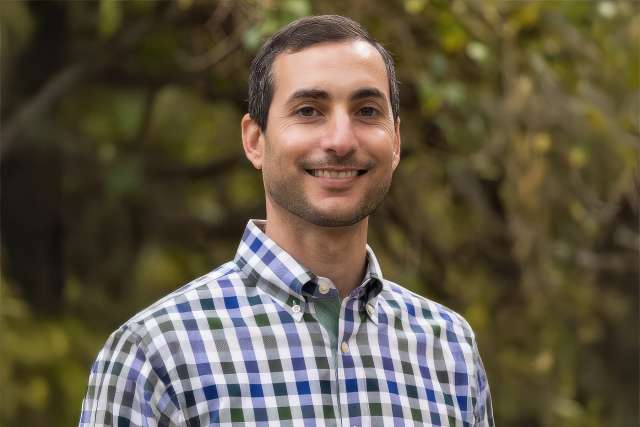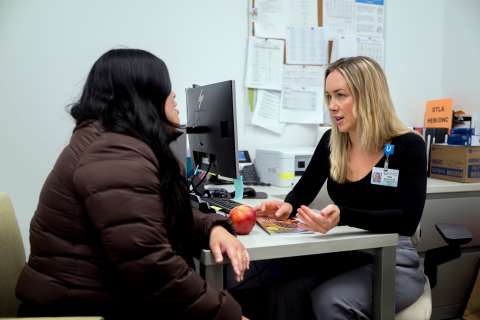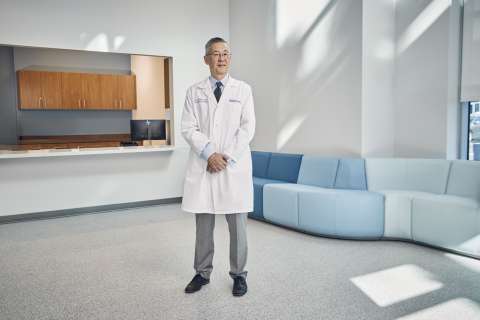A team of researchers at UCLA and the National Cancer Institute has received the 2024 Larry & Sherry Benaroya Prostate Cancer Foundation Challenge Award to uncover how liver metastases fuel cancer growth and identify novel therapeutic strategies to improve outcomes for patients with liver-metastatic castration-resistant prostate cancer (mCRPC), one of the most aggressive and deadly forms of the disease.
This cross-disciplinary team of investigators, led by Andrew Goldstein, associate professor in the departments of Molecular, Cell & Developmental Biology and Urology at the David Geffen School of Medicine at UCLA, and Adam Sowalsky, a senior investigator at the National Cancer Institute, was awarded $1 million to identify metabolic pathways that drive tumor growth in the liver and explore whether targeting these pathways could enhance patient survival.
Prostate cancer commonly spreads to the lymph nodes and bones, but when it metastasizes to the liver, patient outcomes are significantly worse, with the shortest median overall survival of any metastatic site. Despite this, little is known about what makes liver-metastatic prostate cancer so difficult to treat.
Goldstein and his team believe that the liver’s role in regulating metabolism may allow certain cancer cells to thrive in this environment. The team’s research will involve analyzing tumor samples from diverse patients and models to identify metabolic pathways that drive liver metastases. The team has already identified specific metabolic traits, such as NRF2-driven antioxidant metabolism and NADPH synthesis, that could be therapeutically targeted.
“Our goal is to understand why liver metastases are so lethal and to develop innovative therapies that improve survival for patients with advanced prostate cancer,” said Goldstein, who is a member of the UCLA Health Jonsson Comprehensive Cancer Center and the Eli and Edythe Broad Center of Regenerative Medicine and Stem Cell Research at UCLA. “By studying the metabolic characteristics of these tumors, we hope to find new ways to block their growth and make them more responsive to treatment.”
The team’s co-investigators are Dr. Matthew Rettig, Dr. Isla Garraway, Heather Christofk, Thomas Vallim, David Elashoff, and Amjad Askary from UCLA, as well as Dr. Freddy Escorcia and JuanJuan Yin from the National Cancer Institute.




